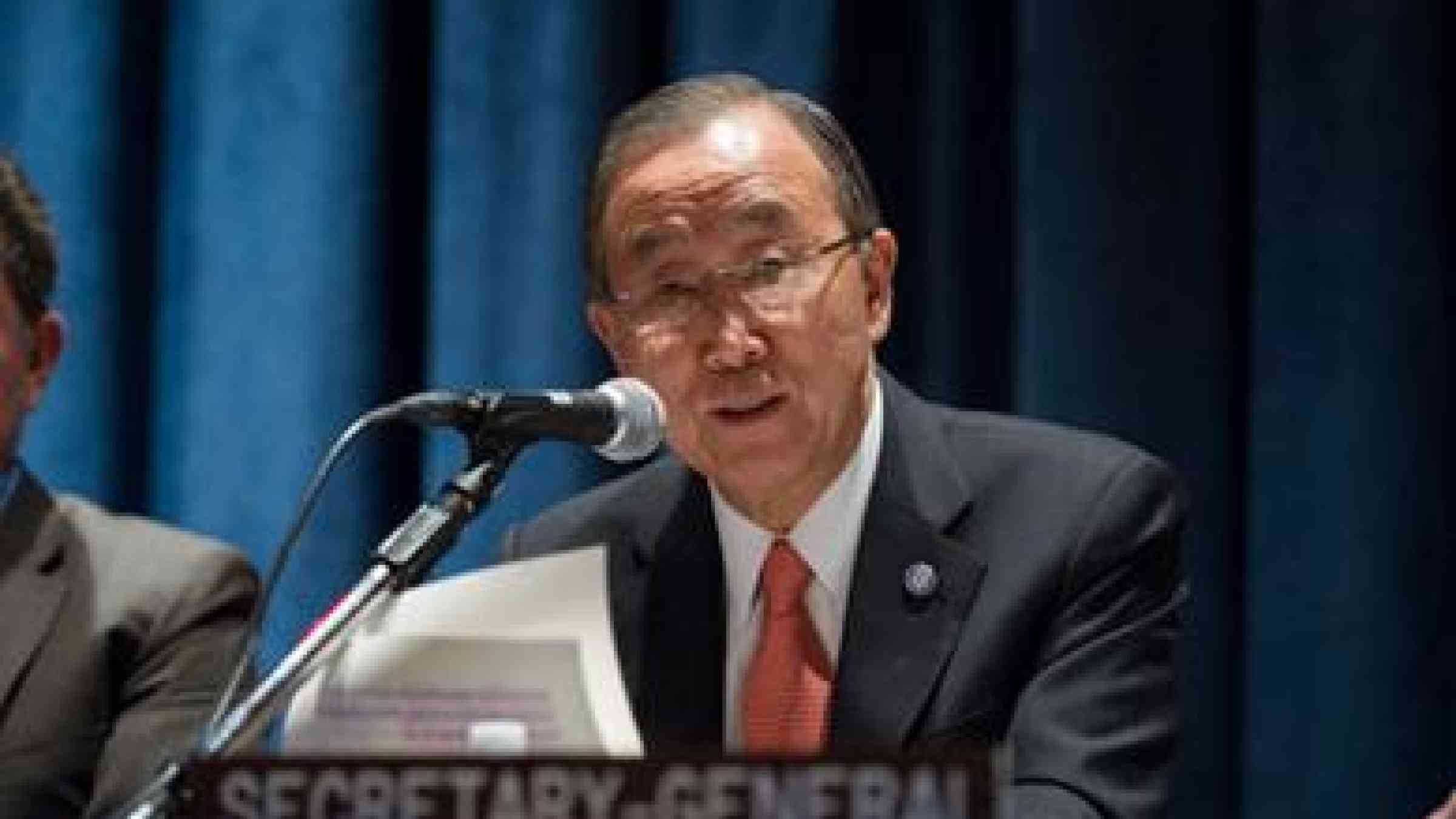Sendai disaster confab kicks off important year for sustainability: Ban

U.N. Secretary General Ban Ki-moon on Wednesday announced he would visit Sendai for the Third U.N. World Conference on Disaster Risk Reduction, which begins late next week. The event is the first in a series of gatherings around the globe on development goals and sustainability.
“The message is clear: Sustainability starts in Sendai,” Ban told a packed audience at the United Nations, where a global report on disaster risk reduction was also launched.
Ban was referring to a set of meetings that follow Sendai. They include an Addis Ababa conference on financing for development in July and the Paris climate change meeting in December, where negotiators are hoping to strike a universal agreement.
The U.N. chief is among the estimated 8,000 participants, including “an unprecedented number of high-level leaders,” Ban said, who will take part in the Sendai event from March 14 to 18.
He is scheduled to meet survivors of the Great East Japan Earthquake of March 2011 and will additionally hold talks with Prime Minister Shinzo Abe.
Ban pointed out that more than $300 billion is collectively lost annually when disasters strike and that it is usually the poorest who suffer most.
“We have to act,” he said. “Disaster risk reduction saves lives and cuts losses.”
The report said that small island states are particularly vulnerable and that future disasters pose “an existential threat.”
Ban stressed that the report “shows how investing in risk prevention pays high dividends while saving lives” and “charts a path toward a more disaster-resilient future.”
Meanwhile, Margareta Wahlstrom, Ban’s special representative for disaster risk reduction, pointed to Japan as an example.
“Japan taught us the word ‘tsunami’ and also now very recently again taught us the realities of tsunami,” she said, adding that for decades the country has shared its technology and know-how to help other countries build up their risk management systems.